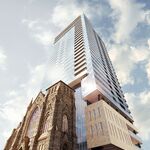AlvinofDiaspar
Moderator
That said, it doesn't get you a lot; assuming 1 million households, $150/year only nets you $150M - it will take half a century to pay for any single decent subway expansion (or a quarter, with the least forward thinking, most optimistic P3 schemes scaled to the lowest level of service). Not quite sufficient for full lines like DRL or Eglinton.
AoD
AoD




